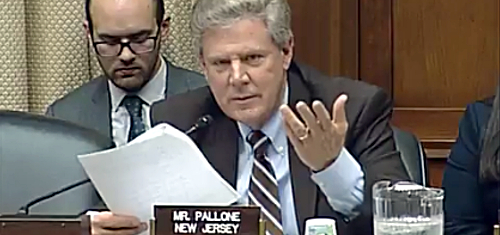 The US House of Representatives held its first hearing on daily fantasy sports, but the outcome failed to shed much light on the issue or provide any indication that Congress plans to take any concrete action – pro or con – on the issue.
The US House of Representatives held its first hearing on daily fantasy sports, but the outcome failed to shed much light on the issue or provide any indication that Congress plans to take any concrete action – pro or con – on the issue.
On Wednesday, the House Subcommittee on Commerce, Manufacturing, and Trade conducted the first federal hearing on DFS, and while efforts were made to link the issue to the broader subjects of sports betting and online gambling, there was no suggestion that Congress intends to do much of anything on any of these fronts anytime soon.
The meeting came following requests from New Jersey Rep. Frank Pallone Jr., whose state has led the push to scrap the federal PASPA sports betting prohibition. Pallone’s opening statement drove home this theme, rubbishing the “hypocrisy of those arguing that daily fantasy sports is readily distinguishable from traditional sports betting.”
The two leading DFS operators – DraftKings and FanDuel – declined to send reps to the hearing, as did the major sports leagues whom Pallone accused of reaping “huge profits from their partnerships” with DFS operators while remaining “stubbornly opposed to sports betting.”
Among those who did show up to offer testimony were some legal eagles, geolocation specialists GeoComply, the chairman of the Fantasy Sports Trade Association and its junior peer the Small Businesses of Fantasy Sports Trade Association, although none of their testimony would have proved informative for anyone who has been following the DFS news cycle over the past year.
The ensuing Q&A session was largely an exercise in allowing (a) Pallone to continue chastising DFS operators, the leagues and PASPA, and (b) other federal pols to expose their DFS ignorance. The latter category included Subcommittee chair Rep. Michael Burgess (R-TX), who wondered how DFS could offer daily contests when football games were only played once a week.
Bottom line, Wednesday’s hearing was solely an opportunity for Pallone to air his sports betting arguments on a slightly larger stage, but it’s doubtful whether his anti-PASPA argument achieved anything other than providing emotional support for sports betting backers in his home state.
